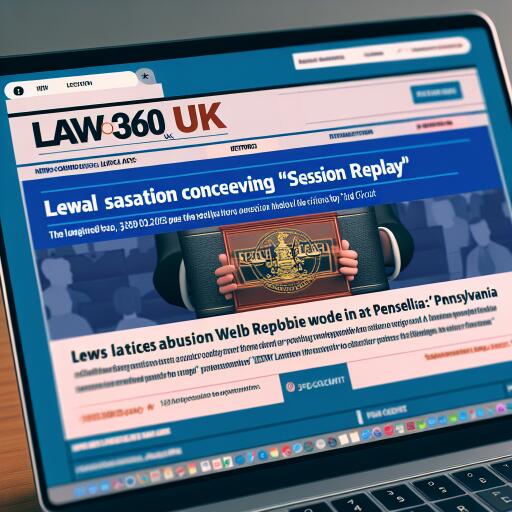Deliberations on Jurisdiction Over Web Tracking in Pennsylvania Courts
During a recent session, a panel from the Third Circuit was noticeably divided on the issue concerning whether the operation of “session replay” software by companies such as Papa John’s or Mattress Firm constitutes as “directed conduct” towards Pennsylvania. This pivotal question revolves around the legal bearings of tracking website users’ activities, probing whether such actions enable Pennsylvania courts to hold jurisdiction over claims accusing these practices of infringing wiretapping laws.
The core of the debate lies in the technological intricacies and legal implications of session replay software. This modern web tool records users’ interactions on websites, collecting data on cursor movements, page navigation, and input on forms, under the guise of improving user experience and website functionality. However, these actions raise significant privacy concerns, as they might inadvertently capture sensitive information, thus potentially overstepping legal boundaries that protect individuals’ digital privacy.
The crux of the matter for the Third Circuit panel hinges on whether the deployment of such software by corporations can be interpreted legally as engaging with the state of Pennsylvania to a degree that subjects them to the jurisdiction of its courts. This decision is complicated by the virtual and boundaryless nature of the internet, where actions on a website can have far-reaching implications, extending beyond the physical locales of the companies operating these sites.
This issue is not just a matter of legal technicality; it touches upon the broader dynamics of internet privacy, user consent, and the extent of corporate accountability in the digital age. The deliberation by the Third Circuit reflects a growing need to reassess traditional legal frameworks in the face of evolving technological landscapes, ensuring that laws evolve in tandem with innovations to safeguard individuals’ rights effectively.
As of now, the debate continues, with no consensus reached. The outcome of this legal scrutiny could set a critical precedent, potentially reshaping how businesses use web technologies and how they are regulated. This case highlights the ongoing struggle to balance the benefits of advanced technologies against the imperative to protect user privacy and uphold legal standards in an increasingly digital world.










